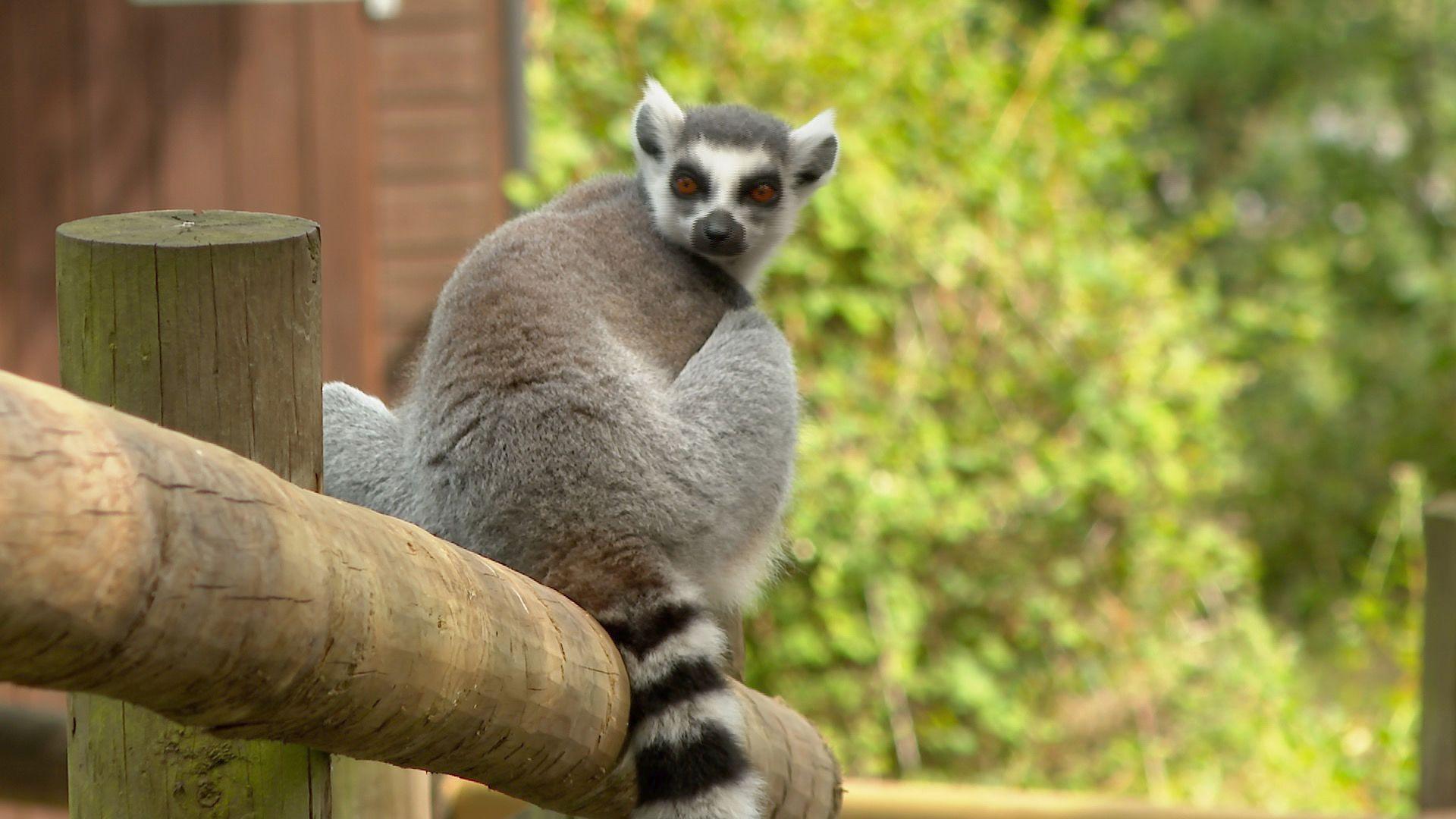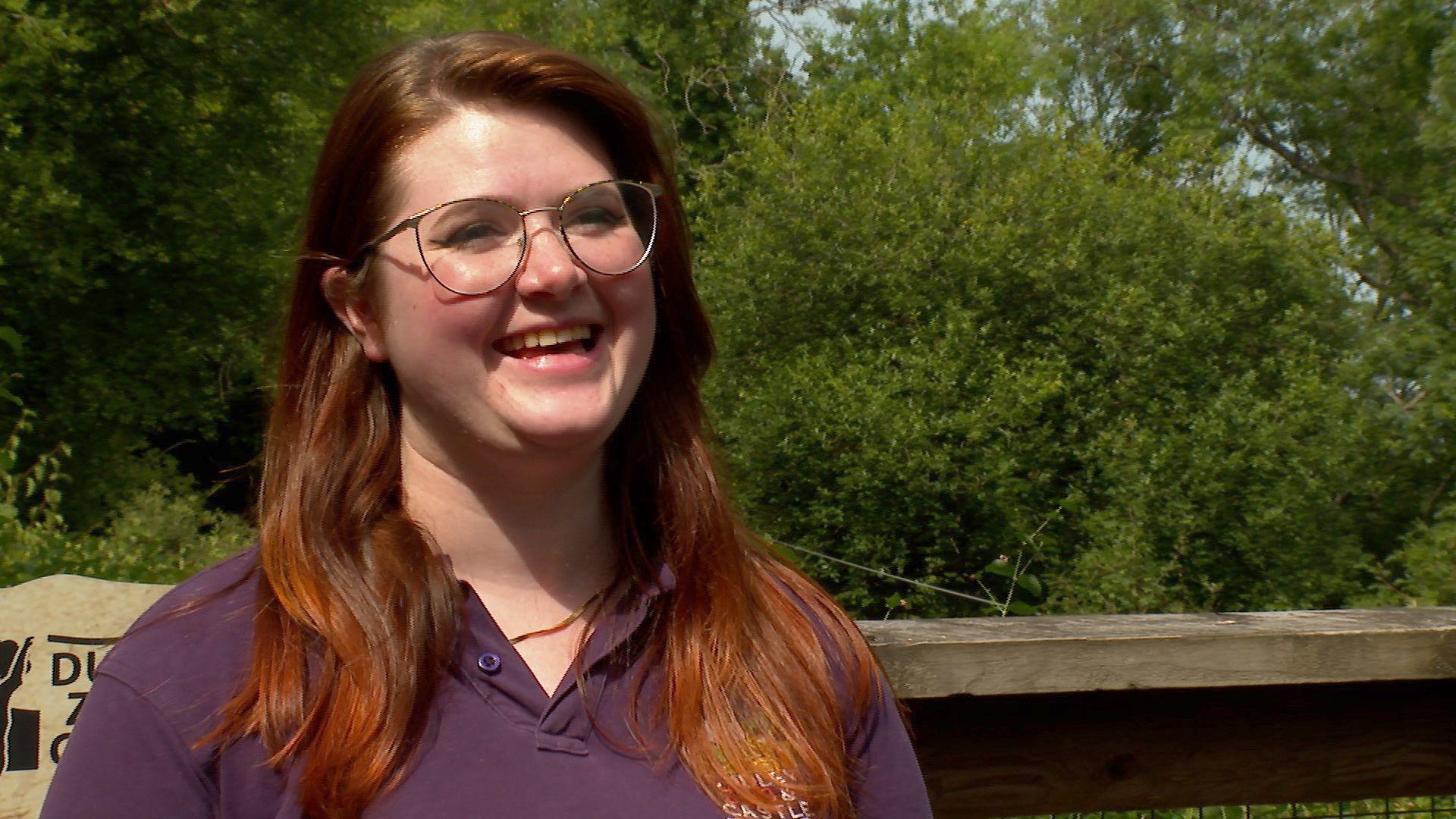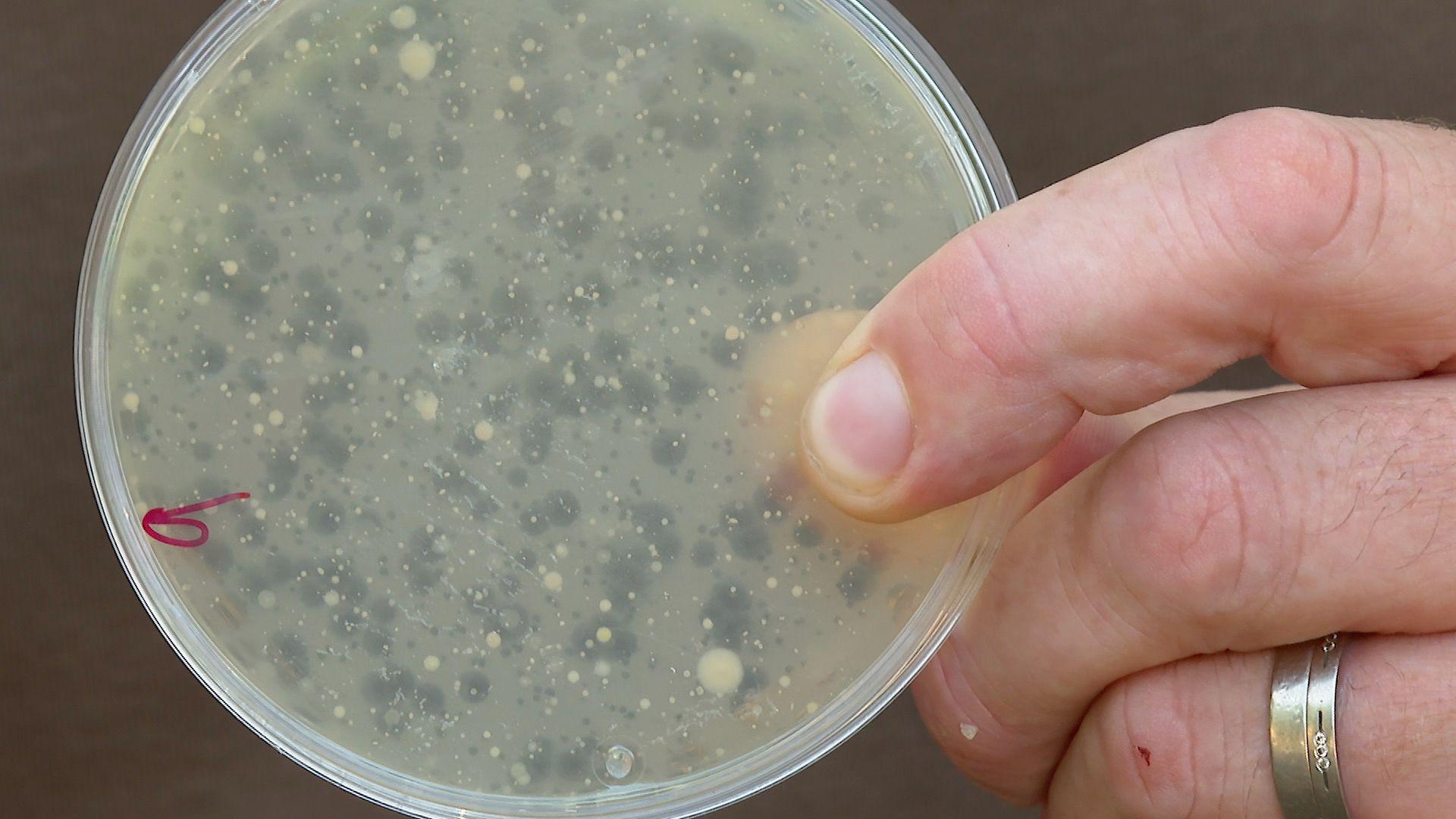Could zoo poo hold the key to fighting infection?

Samples were collected from each of the animals at Dudley Zoo
- Published
Zoo poo could be the source for exciting developments in medical treatments, according to scientists.
They have been busy analysing dung samples from nearly every animal at Dudley Zoo in their search for potential new ways to tackle infections in patients.
Inside animal droppings you can find very special viruses called bacteriophages, or phages for short.
I asked Dr Andrew Millard from the University of Leicester, who is leading the project, why his team was so interested in them.

The dung samples could help find new ways of fighting bacterial infection, scientists say
"We're running out of antibiotics to treat infections, so we need new treatments," he said.
"And one of these potential treatments are bacteriophages because they're extremely efficient at killing bacteria."
Dr Millard and his team are building up a huge library of phages so they can find the ones that are best at fighting different types of bacterial infection.
As infections become more resistant to our existing antibiotics phages offer an alternative treatment.

Fran Lovell, from the zoo's education department, helps collect the samples
But why zoo poo?
Well dung contains lots of bacteria and that means lots of phages and with so many very different animals, from sloths to flamingos, it's a really quick way to build up a diverse database of different phages.
The more you have the better the chance of finding that lifesaving treatment of the future.
For somewhere like Dudley Zoo a call for poo is actually fairly normal.
The requests get routed through Fran Lovell in its education department and then the keepers get to spring into collecting action.
Ms Lovell does remember one study involving microplastics in otter poo.
"Normally poo goes in a plastic pot, but this one had to be packaged up in tinfoil," she explained.
"Now otter poo is not the most solid so it's a little bit tricky. But we had to do it so the study was scientifically viable."

The samples were taken by the University of Leicester for analysis
Sadly, one animal was missing from this zoo-wide poo search. Sloths only poo once a week and they missed the deadline for sample collection.
As a treat Dr Millard brought back a stack of petri dishes, each one carrying a sample unearthed from one of the zoo's animals.
Skink (it's a sort of armless lizard apparently) poo showed clear gaps in the bottom of the petri dish, which is where a phage has killed off the bacteria that are present.
So this, rather stinky, sample may one day be used as the basis for a medicine to treat patients.
And before we left Dr Millard and I spent a happy few minutes feeding the giraffes. After all, we've got to keep poo production going for the next scientist.
Get in touch
Tell us which stories we should cover in Birmingham and the Black Country
Follow BBC Birmingham on BBC Sounds, Facebook, external, X, external and Instagram, external.